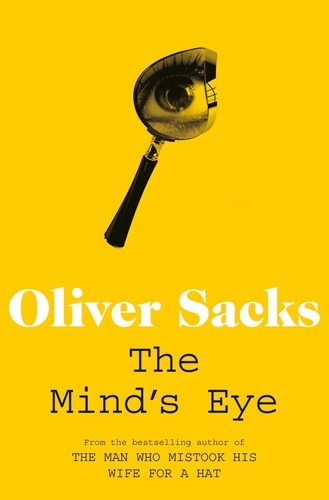The Mind’s Eye
2.600,00 د.ج
‘Oliver Sacks is a perfect antidote to the anaesthetic of familiarity. His writing turns brains and minds transparent’ Observer How does the brain perceive and interpret information from the eye? And what happens when the process is disrupted? In The Mind’s Eye, Oliver Sacks tells the stories of people who are able to navigate the world and communicate with others despite losing what many of us consider indispensable senses and abilities: the capacity to recognize faces, the sense of three-dimensional space, the ability to read, the sense of sight. For all of these people, the challenge is to adapt to a radically new way of being in the world and The Mind’s Eye is testament to the myriad ways that we, as humans, are capable of rising to this challenge. ‘The Mind’s Eye is about the possibility of recovery and the inexorable decline of the ageing individual. From this collision of incompatible truths, tragedy is made …making this Sacks’s most powerful book to date’ Sunday Telegraph ‘Packed with wisdom, humour, extraordinary human stories and reflections on how we all perceive the world …He ends with a brilliant discussion of blindness and the ways in which blind people develop visual concepts. Heartily recommended’ Reader’s Digest
‘Oliver Sacks is a perfect antidote to the anaesthetic of familiarity. His writing turns brains and minds transparent’ Observer How does the brain perceive and interpret information from the eye? And what happens when the process is disrupted? In The Mind’s Eye, Oliver Sacks tells the stories of people who are able to navigate the world and communicate with others despite losing what many of us consider indispensable senses and abilities: the capacity to recognize faces, the sense of three-dimensional space, the ability to read, the sense of sight. For all of these people, the challenge is to adapt to a radically new way of being in the world and The Mind’s Eye is testament to the myriad ways that we, as humans, are capable of rising to this challenge. ‘The Mind’s Eye is about the possibility of recovery and the inexorable decline of the ageing individual. From this collision of incompatible truths, tragedy is made …making this Sacks’s most powerful book to date’ Sunday Telegraph ‘Packed with wisdom, humour, extraordinary human stories and reflections on how we all perceive the world …He ends with a brilliant discussion of blindness and the ways in which blind people develop visual concepts. Heartily recommended’ Reader’s Digest
| Editeur |
|---|
Produits similaires
In Cold Blood
An alternate cover of this ISBN can be found here.
Why We Can’t Sleep: Women’s New Midlife Crisis
Calhoun decided to find some answers. She looked into housing costs, HR trends, credit card debt averages and divorce data. At every turn, she saw a pattern: sandwiched between the Boomers and the Millennials, Gen X women were facing new problems as they entered middle age, problems that were being largely overlooked.
Speaking with women across America about their experiences as the generation raised to 'have it all,' Calhoun found that most were exhausted, terrified about money, under-employed, and overwhelmed. Instead of their issues being heard, they were told instead to lean in, take 'me-time' or make a chore chart to get their lives and homes in order.
In Why We Can't Sleep, Calhoun opens up the cultural and political contexts of Gen X's predicament and offers solutions for how to pull oneself out of the abyss - and keep the next generation of women from falling in. The result is reassuring, empowering and essential reading for all middle-aged women, and anyone who hopes to understand them.
When Breath Becomes Air: THE MILLION COPY BESTSELLER
When Breath Becomes Air chronicles Kalanithi’s transformation from a medical student asking what makes a virtuous and meaningful life into a neurosurgeon working in the core of human identity – the brain – and finally into a patient and a new father.
An Anthropologist on Mars
Musicophilia: Tales of Music and the Brain
A Higher Loyalty: Truth, Lies, and Leadership
Man’s Search For Meaning: The classic tribute to hope from the Holocaust
'A book to read, to cherish, to debate, and one that will ultimately keep the memories of the victims alive' John Boyne, author of The Boy in the Striped Pyjamas
A prominent Viennese psychiatrist before the war, Viktor Frankl was uniquely able to observe the way that both he and others in Auschwitz coped (or didn't) with the experience. He noticed that it was the men who comforted others and who gave away their last piece of bread who survived the longest - and who offered proof that everything can be taken away from us except the ability to choose our attitude in any given set of circumstances. The sort of person the concentration camp prisoner became was the result of an inner decision and not of camp influences alone. Frankl came to believe man's deepest desire is to search for meaning and purpose. This outstanding work offers us all a way to transcend suffering and find significance in the art of living.









